My mother’s family were not the only ones to have suffered the effects of history. My father’s family, who lived at the time in Courland, were also thrown into turmoil in the years after 1918.
I find the history of that time in Courland, which is now Latvia, difficult to comprehend but I will attempt to give a very brief version, as I understand it. I have translated some information from the genealogical history of our family, written by my cousin Wolf Lackschewitz and some information I have read on the Instagram site of Nurmuizas.pils.
In 1566, Georg von Fircks bought the village of Nurme from his brother in law Christopher Hoerde. Here Georg built a mighty castle at the end of the 16th century called Nurmhusen, which had lands of 14,010 hectares and became the family seat. The von Fircks were one of the most influential families of the Livonian knights; their influence, wealth and power lasting until the end of the 18th century. In his will Georg von Fircks stated that the land and grounds should forever remain in possession of only males and only the male descendants of his blood and name. Daughters and widows must be looked after, presumably by the male heirs. Peter von Fircks, my grandfather, was the 13th and last owner of Nurmhusen.
In 1914 my grandparents moved to Nurmhusen when my grandfather’s older half-brother died without a male heir. My grandparents and their three children fled their home in 1918, either because of the Russian Revolution, or the Latvian War of Independence, or both. For me the reason is unclear, although I do know they feared the arrival of the Bolsheviks, but the result is that my father, the youngest of their children, was born a refugee in Germany.
In 1920 Nurmhusen was expropriated by the young Latvian State. Former Baltic German owners were only allowed to keep 50 hectares of land and in 1924 the government decided they would receive no compensation for the land which was taken from them. It was in 1924 my grandparents decided to move their family back to Latvia but, as they no longer owned Nurmhusen, they relocated to the town of Mitau.
In 1933 my grandmother died. In 1939, as a result of the Molotov-Ribbentrop Pact (The Treaty of Non-aggression between Germany and the Union of Soviet Socialist Republics), Latvia was assigned to the “Soviet sphere of influence” and Hitler ordered the transfer of all Baltic Germans to areas under German military control. My grandfather was relocated to Poland, where he was most likely given land which had been forcibly taken from its Polish owners. By that time my father and his brother had been drafted into the German army. As far as I know, neither my grandfather, my father or any or his siblings ever went back to Nurmhusen.
I first visited Nurmhusen in 2014 and then again last year with two of my sons. It is in the process of being restored to its former glory by its new owner. I hope I will be able to visit it again some time.
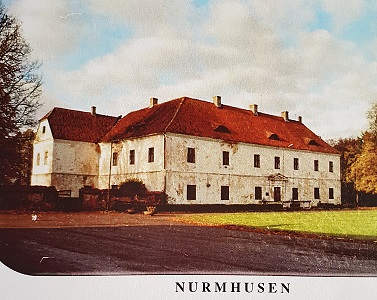
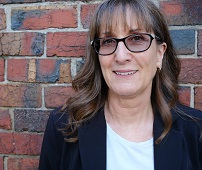
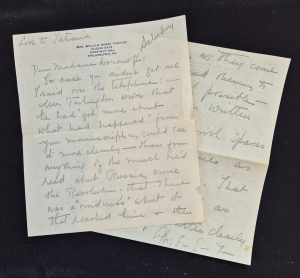
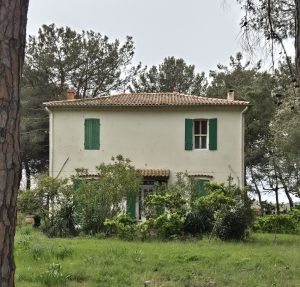
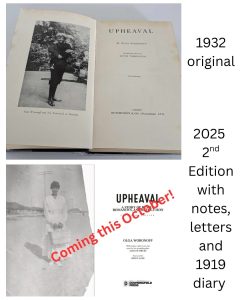
This Post Has 17 Comments
Hallo. Maybe you know what happen in Nurmhusen from 1890 till 1910 years!Wich baron there was. I’m interested in Nurmhusen becouse my grangrangran mother Anna Ozolina (1871-1950) was worked in Nurmhusen. She was maid to baron. 1900 she gave birth to a baby boy. Anna gave the boy to other people and then going back to work. she hid the baby becouse he was son of baron and baron was married but she was a mad. maybe you know some more things about this history time. Tnx.
Hallo Ieva – I’m afraid I don’t know much about the history of Nurmhusen or the barons. Sorry I can’t help you!
Ieva, sveika!
Tavu jautājumu varētu zināt un vai viņam tas varētu būt interesants, Nurmuižas pārvaldnieks Aldis Denčiks. Viņš atrodams draugos un fb.
I found this article interesting, I descend from Dorothea von Plettenberg (von Fircks) daughter
of George IV and in the end of the 1700s , my fourth Great Grandfather George Frederick
Wilhelm v Pfeilitzer attended school under Pastor von Levezau (1778-1782) and went on to
wina Pour Le Merite. I guess I was lucky in that he was likely the first Latvian noble to leave
Latvian long before the time of terror – although many cousins died
hallo! I writing from Latvia.
Two months ago i bying Garlene manor house witch last baron – ovner till about 1920 was von Fircks. I have very less information about history of this house, because compare with Nurmhusen Garlene is small manor house. My house is in very bad situation and i want restore it. I want to start with history about it. I have no picture from period till 1930. My manor house was built in 1830. We looking information in Latvia archives, but maybe somebody from von Fircks relatives have some information or pictures. That be a miracle! And make me very happy.
Hi Sigita – how lovely! I always like hearing about people restoring old buildings. I have looked through a few of the books I have but haven’t found anything on a manor house called Garlene. Could you please email me more information – did it have any other names? location? was it a part of another manor house? I will try to find out what I can for you but I need more information.
Sigita I sent you an email, I hope it reached you.
Hello Alex,
Your blogs are fascinating. I came across them as I am trying to trace ‘Baron Friedrich Carl Ernst de Fircks of Mitau, Courland’ who married a member of my own family at the British Embassy in Brussels in August 1862.
I can find nothing more about this Carl. By any chance, is his a name you know?
Thank you again for such interesting blogs and for sharing your rich family history.
Thank you for reading my blog – I’ll have a look and see what I can find.
Hi! Maybe You know about Fred von Fircks from Bresilgen gut(Kurland)?
Hi Juris, do you have any more information so I can look him up? Birth date? Death? Marriage? Children?
Hello Alex,
This story is very interesting, I was wondering if you heard or know anything about the Baron George von Fircks? He educated two young german nobles children from Togolese heritage, Regina and Pietro Bruce around 1900. This reflects a very interesting story of cross continental exchanges in the frame of World war I and colonial history.
Hi Evan, I believe George is a Fircks family name. I will have a look to see if I can find a Baron George in the family tree. It does sound like an interesting story. Thank you for reading my blog!
Dear Evan,
While researching family structures, I came across Alex de Fircks’ website today and read your question.
My great‑aunt Charlotte was married to Pietro Bruce.
I found online that he and his sister were taken in and raised by Baron George von Fircks. There is also a book about the Bruce family history by Rea Brändle: “Nayo Bruce – The Story of an African Family in Europe.”
If you have any further information about Pietro Bruce, I would be delighted to hear from you.
@Alex – have you by any chance found information about George von Fircks or the two children?
Kind regards from Germany,
Tina
Hi Tina, thank you for commenting! No, I haven’t been able to find any more information on them as yet.
Hi Alex,
Thank you for your reply.
There is, among other sources, a Wikipedia entry about this. Here is the link and an excerpt from the article:
https://de.wikipedia.org/wiki/Regina_Bruce
“Education
Life in the troupe was, however, not beneficial for the children, and so, when the troupe stayed in Warnemünde in 1904, the Bremen Mission arranged contact with the family of Baron George von Fircks, an old Baltic noble family. They took in Regina and her half-brother Pietro. They enabled them to receive a good education; for some time, they even lived on the family estate in Riga. Originally, the children were only supposed to stay with the von Fircks family for a few years to receive an education — something that was very important to their father — but they remained there until they reached adulthood. Regina Bruce attended a higher girls’ school and trained with the deaconesses. Her half-brother became a cook. At the age of 20, she took over the management of the Protestant children’s home “Sonnenschein” in Groß-Borstel near Hamburg, together with her friend Hanna.”
Hi Tina, that is fascinating! I’ll definitely have a look at that article. Thanks for sharing it!